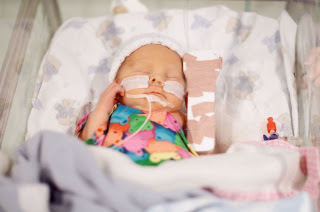 Experts warn that stress and depression during pregnancy can lead to premature birth. Research has shown that depressed pregnant women experience elevated levels of stress hormones, which can impact the development of the unborn baby. These high hormone levels are associated with triggering labor, potentially contributing to the 45,000 premature births that occur each year in the UK.
Experts warn that stress and depression during pregnancy can lead to premature birth. Research has shown that depressed pregnant women experience elevated levels of stress hormones, which can impact the development of the unborn baby. These high hormone levels are associated with triggering labor, potentially contributing to the 45,000 premature births that occur each year in the UK.
Premature babies, born before 37 weeks of pregnancy, face increased risks of death and a range of health problems. Approximately one in ten premature babies develop permanent disabilities such as lung disease, cerebral palsy, blindness, or deafness. While some premature births can be explained by medical reasons, around 30% remain unexplained.
Dr. Veronica O’Keane, an expert in mental health during pregnancy, believes that a significant number of these unexplained premature births could be caused by high stress hormone levels. She argues that addressing stress and depression during pregnancy could potentially prevent such births. However, there is a prevailing myth that depression does not occur during pregnancy, which needs to be debunked.
Dr. O’Keane calls for more research in this area, as there is a lack of literature on the topic. She highlights the need to understand what happens during pregnancy and how to address complications effectively.
It is also believed that elevated stress hormones in the womb can impact the brain development of the unborn child. Previous studies have shown that toddlers born to stressed mothers have a higher risk of having below-average IQs, being hyperactive, and experiencing emotional problems.
Dr. O’Keane’s work indicates that children whose mothers became depressed during pregnancy struggle more with handling stress themselves. Testing on two-month-old babies showed that those whose mothers were depressed before their birth exhibited higher levels of stress hormones when receiving routine vaccinations.
This abnormal cortisol secretion may be a way of transmitting depression across generations without it being purely genetic. The stigma around depression often discourages pregnant women from seeking help, highlighting the need for greater support and understanding.






